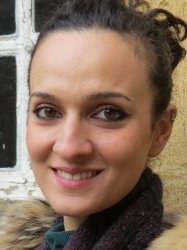Studying at the University of Verona
Here you can find information on the organisational aspects of the Programme, lecture timetables, learning activities and useful contact details for your time at the University, from enrolment to graduation.
Academic calendar
The academic calendar shows the deadlines and scheduled events that are relevant to students, teaching and technical-administrative staff of the University. Public holidays and University closures are also indicated. The academic year normally begins on 1 October each year and ends on 30 September of the following year.
Course calendar
The Academic Calendar sets out the degree programme lecture and exam timetables, as well as the relevant university closure dates..
| Period | From | To |
|---|---|---|
| primo semestre (lauree magistrali) | Oct 4, 2021 | Dec 17, 2021 |
| secondo semestre (lauree magistrali) | Feb 21, 2022 | May 13, 2022 |
| Session | From | To |
|---|---|---|
| sessione invernale | Jan 10, 2022 | Feb 18, 2022 |
| sessione estiva | May 23, 2022 | Jul 8, 2022 |
| sessione autunnale | Aug 22, 2022 | Sep 23, 2022 |
| Session | From | To |
|---|---|---|
| sessione autunnale (validità a.a. 2020/2021) | Dec 6, 2021 | Dec 10, 2021 |
| sessione invernale (validità a.a. 2020/2021) | Apr 6, 2022 | Apr 8, 2022 |
| sessione estiva (validità a.a. 2021/2022) | Sep 5, 2022 | Sep 6, 2022 |
Exam calendar
Exam dates and rounds are managed by the relevant Economics Teaching and Student Services Unit.
To view all the exam sessions available, please use the Exam dashboard on ESSE3.
If you forgot your login details or have problems logging in, please contact the relevant IT HelpDesk, or check the login details recovery web page.
Should you have any doubts or questions, please check the Enrollment FAQs
Academic staff
 laura.chiaramonte@univr.it
laura.chiaramonte@univr.it
 mauro.cortese@univr.it
mauro.cortese@univr.it
 cecilia.mancini@univr.it
cecilia.mancini@univr.it

Santi Flavio
 flavio.santi@univr.it
flavio.santi@univr.it
 045 802 8239
045 802 8239

Vannucci Virginia
 virginia.vannucci@univr.it
virginia.vannucci@univr.it
Study Plan
The Study Plan includes all modules, teaching and learning activities that each student will need to undertake during their time at the University.
Please select your Study Plan based on your enrollment year.
1° Year
| Modules | Credits | TAF | SSD |
|---|
2° Year activated in the A.Y. 2022/2023
| Modules | Credits | TAF | SSD |
|---|
| Modules | Credits | TAF | SSD |
|---|
| Modules | Credits | TAF | SSD |
|---|
| Modules | Credits | TAF | SSD |
|---|
Legend | Type of training activity (TTA)
TAF (Type of Educational Activity) All courses and activities are classified into different types of educational activities, indicated by a letter.
Financial Risk Management (2021/2022)
Teaching code
4S006189
Teacher
Coordinator
Credits
9
Language
Italian
Scientific Disciplinary Sector (SSD)
SECS-S/06 - MATHEMATICAL METHODS OF ECONOMICS, FINANCE AND ACTUARIAL SCIENCES
Period
secondo semestre (lauree magistrali) dal Feb 21, 2022 al May 13, 2022.
Learning outcomes
The goal of the lecture is to present the theoretical foundations and the models employed by financial institutions to manage different sources of financial risk. A particular focus will be put on numerical methods (Monte Carlo simulations) and their implementation using modern IT-Tools (Java, Eclipse).
Program
Part 1: Monte Carlo Methods Basic notions: expectation, Lp spaces, classical inequalities (Markov, Chebychev etc...) Classical numerical integration Monte Carlo integration (code) Generation of random draws and discretization of stochastic processes (code) Variance reduction techniques (code)
Part 2: Market Risk Introduction: IR, Equity, FX, Commodities, Options Risk Measures: general theory VaR/ES calculation
- Historical approach (code)
- Analytical approach
- Monte Carlo simulations (code)
Optional: Basel II regulations
Part 3: Credit Risk Basic risks in a default-free setting: duration and convexity Structural Models Rating based models Reduced form models Optional: Basel II regulations
Part 4: Counterparty Credit Risk Funding and collateral (xVA) CVA DVA FVA Monte Carlo for xVA (code) Optional: Basel III/Basel IV regulations
Prerequisites:
- A good working knowledge of mathematical analysis (limits/derivatives/integration). The ability to solve standard first and second order equations/inequations.
- A good working knowledge of basic statistics (probability distributions, conditional probabilities, random variables, central limit theorem, law of large numbers, statistical tests, conditional/unconditional expected values/moments).
- Programming: the lecture does not assume that students are experienced Java programmers, anyway attendance of the block-lecture Introduction to Java Programming, offered before the lectures starts, is recommended. It is assumed that students are able to write simple programs in any language such as Matlab, Python, Visual Basic, Turbo Pascal etc. In summary, it is assumed that students are able to think in an algorithmic way, independently of any programming language. Practical tutorials for the Java programming language will be provided.
Bibliography
Examination Methods
The exam consists of two parts: the first is a Project Work that has to be completed by using the Java programming language. The mark on the project work has a weight of 30% on the final grade.
The Project Work can be completed by groups consisting of up to 4 people.
Aims of the project work are:
implement and deepen the understanding of the methods illustrated during the lecture.
improve the ability to work in teams.
The grade of the project work is valid for all written exams during the current academic year and for the first two examinations of the next academic year.
Students get access to the written exam only if the project work has a positive valuation. Those who do not submit any solution will not be accepted to the exam.
The second part of the exam consists of a written exam on all topics of the lecture. The exam contain theoretical and practical exercises together with programming questions related to the Java programming language. In case the grade is greater or equal to 18, the written exam has a weight of 70% on the final mark.
Type D and Type F activities
Nei piani didattici di ciascun Corso di studio è previsto l’obbligo di conseguire un certo numero di crediti formativi mediante attività a scelta (chiamate anche "di tipologia D e F").
Oltre che in insegnamenti previsti nei piani didattici di altri corsi di studio e in certificazioni linguistiche o informatiche secondo quanto specificato nei regolamenti di ciascun corso, tali attività possono consistere anche in iniziative extracurriculari di contenuto vario, quali ad esempio la partecipazione a un seminario o a un ciclo di seminari, la frequenza di laboratori didattici, lo svolgimento di project work, stage aggiuntivo, eccetera.
Come per ogni altra attività a scelta, è necessario che anche queste non costituiscano un duplicato di conoscenze e competenze già acquisite dallo studente.
Quelle elencate in questa pagina sono le iniziative extracurriculari che sono state approvate dal Consiglio della Scuola di Economia e Management e quindi consentono a chi vi partecipa l'acquisizione dei CFU specificati, alle condizioni riportate nelle pagine di dettaglio di ciascuna iniziativa.
Si ricorda in proposito che:
- tutte queste iniziative richiedono, per l'acquisizione dei relativi CFU, il superamento di una prova di verifica delle competenze acquisite, secondo le indicazioni contenute nella sezione "Modalità d'esame" della singola attività;
- lo studente è tenuto a inserire nel proprio piano degli studi l'attività prescelta e a iscriversi all'appello appositamente creato per la verbalizzazione, la cui data viene stabilita dal docente di riferimento e pubblicata nella sezione "Modalità d'esame" della singola attività.
COMPETENZE TRASVERSALI
Scopri i percorsi formativi promossi dal Teaching and learning centre dell'Ateneo, destinati agli studenti iscritti ai corsi di laurea, volti alla promozione delle competenze trasversali: https://talc.univr.it/it/competenze-trasversali
ATTENZIONE: Per essere ammessi a sostenere una qualsiasi attività didattica, inlcuse quelle a scelta, è necessario essere iscritti all'anno di corso in cui essa viene offerta. Si raccomanda, pertanto, ai laureandi delle sessioni di dicembre e aprile di NON svolgere attività extracurriculari del nuovo anno accademico, cui loro non risultano iscritti, essendo tali sessioni di laurea con validità riferita all'anno accademico precedente. Quindi, per attività svolte in un anno accademico cui non si è iscritti, non si potrà dar luogo a riconoscimento di CFU.
| years | Modules | TAF | Teacher |
|---|---|---|---|
| 1° 2° | The fashion lab (1 ECTS) | D |
Caterina Fratea
(Coordinator)
|
| 1° 2° | The fashion lab (2 ECTS) | D |
Caterina Fratea
(Coordinator)
|
| 1° 2° | The fashion lab (3 ECTS) | D |
Caterina Fratea
(Coordinator)
|
| years | Modules | TAF | Teacher |
|---|---|---|---|
| 1° 2° | Marketing plan | D |
Virginia Vannucci
(Coordinator)
|
| years | Modules | TAF | Teacher |
|---|---|---|---|
| 1° 2° | Internationalization and Sustainability. Friends or Enemies? | D |
Angelo Zago
(Coordinator)
|
| 1° 2° | Internationalization and Sustainability. Friends or Enemies? | D |
Angelo Zago
(Coordinator)
|
| 1° 2° | Internationalization and Sustainability. Friends or Enemies? | D |
Angelo Zago
(Coordinator)
|
| 1° 2° | Data Analysis Laboratory with R (Verona) | D |
Marco Minozzo
(Coordinator)
|
| 1° 2° | Data Visualization Laboratory | D |
Marco Minozzo
(Coordinator)
|
| 1° 2° | Python Laboratory | D |
Marco Minozzo
(Coordinator)
|
| 1° 2° | Advanced Excel Laboratory (Verona) | D |
Marco Minozzo
(Coordinator)
|
| 1° 2° | Excel Laboratory (Verona) | D |
Marco Minozzo
(Coordinator)
|
| 1° 2° | Samsung Innovation Camp | D |
Marco Minozzo
(Coordinator)
|
| years | Modules | TAF | Teacher |
|---|---|---|---|
| 1° 2° | Business & Predictive Analytics for International Firms (with Excel Applications) - 2021/2022 | D |
Angelo Zago
(Coordinator)
|
| 1° 2° | What paradigms beyond the pandemic? Individual vs. Society, Private vs. Public | D |
Federico Brunetti
(Coordinator)
|
| 1° 2° | Elements of Financial Risk Management - 2021/2022 | D |
Claudio Zoli
(Coordinator)
|
| 1° 2° | Integrated Financial Planning | D |
Riccardo Stacchezzini
(Coordinator)
|
| years | Modules | TAF | Teacher |
|---|---|---|---|
| 1° 2° | The fashion lab (1 ECTS) | D |
Caterina Fratea
(Coordinator)
|
| 1° 2° | The fashion lab (2 ECTS) | D |
Caterina Fratea
(Coordinator)
|
| 1° 2° | The fashion lab (3 ECTS) | D |
Caterina Fratea
(Coordinator)
|
| years | Modules | TAF | Teacher |
|---|---|---|---|
| 1° 2° | La metodologia SEM applicata allo studio della relazione tra gestione del rischio e performance nelle PMI | D |
Cristina Florio
(Coordinator)
|
| 1° 2° | Laboratory on research methods for business | D |
Cristina Florio
(Coordinator)
|
| 1° 2° | Machine learning and quantum computing with some applications in mathematical finance | D |
Alessandro Gnoatto
(Coordinator)
|
| years | Modules | TAF | Teacher | |
|---|---|---|---|---|
| 1° | Programming in Matlab | D |
Marco Minozzo
(Coordinator)
|
|
| 1° 2° | How to Enter in a Foreign Market. Theory and Applications - 2021/2022 | D |
Angelo Zago
(Coordinator)
|
|
| 1° 2° | Introduction to Java programming | D |
Alessandro Gnoatto
(Coordinator)
|
|
| 1° 2° | Data Science Laboratory with SAP | D |
Marco Minozzo
(Coordinator)
|
|
| 1° 2° | Programming in SAS | D |
Marco Minozzo
(Coordinator)
|
|
Career prospects
Module/Programme news
News for students
There you will find information, resources and services useful during your time at the University (Student’s exam record, your study plan on ESSE3, Distance Learning courses, university email account, office forms, administrative procedures, etc.). You can log into MyUnivr with your GIA login details: only in this way will you be able to receive notification of all the notices from your teachers and your secretariat via email and soon also via the Univr app.
Graduation
List of theses and work experience proposals
| theses proposals | Research area |
|---|---|
| Tesi di laurea magistrale - Tecniche e problemi aperti nel credit scoring | Statistics - Foundational and philosophical topics |
| Fattori ESG e valutazione d'azienda | Various topics |
| Il metodo Monte Carlo per la valutazione di opzioni americane | Various topics |
| Il Minimum Requirement for own funds and Eligible Liabilities (MREL) | Various topics |
| L'acquisto di azioni proprie | Various topics |
| Proposte Tesi A. Gnoatto | Various topics |






















